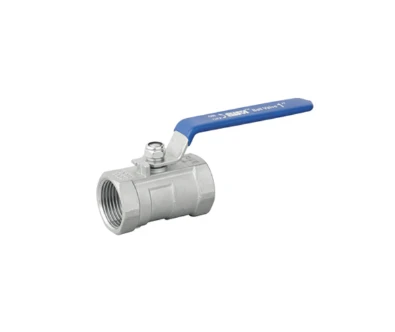Jan . 11, 2025 09:33
Valves are integral components of piping systems, serving the critical function of controlling the flow and pressure of liquids, gases, and slurries within a pipeline. Different types of valves are engineered to perform specific tasks and are selected based on distinct performance characteristics and operational requirements.

In the realm of gate valves, these are primarily used when a straight-line flow and minimum flow restriction are desired. Gate valves operate by lifting a round or rectangular gate out of the path of the fluid. Typically used in applications where the valve either fully opens or closes, they provide a tight seal against the fluid flow. Their durability and straightforward design make them an excellent choice for shut-off applications in water distribution and wastewater plants.
On the other hand, ball valves are renowned for their compact design and reliability over extensive service periods. They employ a spherical disc to control flow and are optimal for situations requiring a rapid shut-off response. Ball valves are highly versatile, able to handle high pressure, high volume, and extreme temperatures. This makes them suitable for chemical processing and oil and gas industries, where precision and consistency are crucial.

Butterfly valves stand out due to their lightweight construction and cost-effectiveness. They feature a disk positioned in the center of the pipe, which rotates around an axis perpendicular to the flow. Known for their quick operation, butterfly valves are often seen in applications where space is a concern and come at a lower cost compared to other valve types of similar function. These valves are commonly used in water systems, HVAC, and industrial processing.
For applications requiring precise flow regulation, globe valves are a perfect choice. Featuring a biconic disk that moves perpendicularly to the seating, globe valves do not merely block flow—they modulate it. This makes them ideal for throttling services, where maintaining a particular flow rate or pressure is essential. They are frequently used in water cooling systems, fuel oil systems, and other settings where flow control accuracy is necessary.
different types of valves in piping
Check valves provide essential protection to piping systems. Designed to allow fluid to flow through them in only one direction, they are automatic valves that prevent backflow, assuring system integrity. These valves are indispensable in scenarios where reverse flow might cause system failure or contamination, such as wastewater management or pumping stations.
Diaphragm valves offer a unique advantage in handling corrosive mediums and slurries. Characterized by their flexible elastomeric diaphragm, they provide tight shut-off and are easily maintained, making them suitable for chemical processing and pharmaceutical applications where contamination is a concern.
Valve selection demands in-depth knowledge of the system requirements, the medium being transported, and the operational environment. An expert understanding of material compatibility, pressure ratings, and temperature tolerances is vital in ensuring the longevity and efficiency of the valve within the piping network. Moreover, trustworthiness in valve selection is enhanced by consulting experienced engineers and manufacturers, ensuring regulatory compliance and adherence to industry standards.
In conclusion, selecting the right valve type is not merely a matter of matching a function; it's about ensuring optimal control, safety, and efficiency within a piping system. It's the expertise and experience of seasoned professionals that guarantees the reliability and authority of your valve choice in industry applications.


 Call us on:
+86-311-86935302
+86-311-86935302
Call us on:
+86-311-86935302
+86-311-86935302
 Email Us:
info@thriveonvalve.com
Email Us:
info@thriveonvalve.com South of Huanmadian Village Town, Ningjin County, Xingtai, Hebei Province, China
South of Huanmadian Village Town, Ningjin County, Xingtai, Hebei Province, China